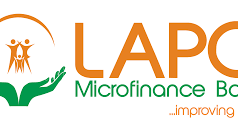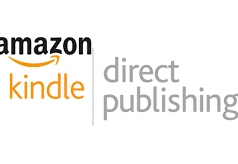Islamic banks are financial institutions that operate according to the principles of Islamic law, or Shariah. This means that they do not invest in or lend money to businesses that engage in activities that are considered to be haram, or forbidden, under Islamic law. For example, Islamic banks do not invest in businesses that produce alcohol, pork, or gambling. They also do not lend money for activities that are considered to be speculative, such as interest-bearing loans.
Islamic banks offer a variety of financial products and services that are compliant with Shariah law. In this article, we will talk about the list of Islamic banks in Nigeria, their origin, growth, and details. Let’s find out.
What are Islamic Banks?
Islamic banks are financial institutions that operate in accordance with the principles of Islamic law, also known as Sharia. These banks offer a unique and ethical approach to banking by integrating religious beliefs and financial practices. Unlike conventional banks, which focus solely on profit, Islamic banks strive to align their operations with moral and ethical values.
At the core of Islamic banking lies the prohibition of interest (riba) and certain types of economic activities considered unethical under Sharia. Instead of traditional interest-based transactions, Islamic banks engage in profit-sharing arrangements, risk-sharing, and investment in ventures that adhere to ethical guidelines.
Key Features of Islamic Banks:
- Interest-Free Transactions: Islamic banks do not engage in interest-based transactions, as charging or paying interest is prohibited by Sharia. This approach aims to ensure fairness and prevent exploitation.
- Profit-Sharing: In profit-sharing arrangements, both the bank and its customers share the risks and rewards of financial activities. This encourages a sense of partnership and aligns the interests of all parties.
- Avoidance of Speculative Activities: Islamic banks avoid speculative activities or investments that involve excessive uncertainty (gharar) or gambling (maysir). They focus on investments that have real economic value.
- Ethical Investments: Islamic banks invest in ventures that adhere to ethical and moral standards, avoiding industries such as alcohol, gambling, and pork production.
- Community Development: Islamic banks emphasize the concept of social justice and community development. They may allocate a portion of their profits for charitable purposes and support initiatives that benefit society.
- Sharia Compliance: A Sharia board, composed of scholars well-versed in Islamic law, oversees the bank’s operations to ensure compliance with religious principles.
- Asset-Backed Financing: Islamic banks often provide financing based on tangible assets or real economic activities, reducing the risk of speculative bubbles.
Islamic banking is not limited to Muslim-majority countries; it has gained prominence worldwide as a viable alternative to conventional banking. The principles of transparency, fairness, and social responsibility embedded in Islamic banking resonate with individuals seeking a financial system aligned with their faith and values.
Read Also: How to Borrow Money from Cash App on Android, iPhone in 2023
List of Islamic Banks in Nigeria: Their Origin, Growth, and Details
Join us as we embark on a comprehensive journey to explore the list of Islamic banks in Nigeria, tracing their origins, unraveling their growth trajectory, and delving into the unique details that set them apart in the realm of finance.
- Jaiz Bank Plc:
- Origin: Jaiz Bank, established in 2003 as Jaiz International Plc, received its full banking license in 2011, becoming the first fully-fledged Islamic bank in Nigeria.
- Growth: Jaiz Bank has rapidly expanded its presence, offering a range of Sharia-compliant banking products and services. It operates with a focus on ethical banking principles, catering to both individual and corporate customers.
- Details: Jaiz Bank’s offerings include savings accounts, current accounts, loans, investment products, and trade financing – all structured to adhere to Islamic principles.
- Taj Bank Limited:
- Origin: Taj Bank, established in 2019, is one of the newer entrants in the Islamic banking arena in Nigeria.
- Growth: Despite being relatively new, Taj Bank has shown significant growth potential, leveraging technology to provide innovative banking solutions to its customers.
- Details: Taj Bank emphasizes customer-centric services, including digital banking options, and provides tailored financial solutions while adhering to Sharia principles.
- SunTrust Bank Nigeria Limited:
- Origin: SunTrust Bank, established in 2016, operates as a full-service commercial bank with a commitment to ethical and Islamic banking practices.
- Growth: While not exclusively an Islamic bank, SunTrust Bank offers Islamic banking windows that provide Sharia-compliant products and services to its customers.
- Details: SunTrust Bank’s Islamic banking windows offer products such as non-interest savings accounts, trade financing, and Sukuk investments.
- Noor Takaful:
- Origin: Noor Takaful, established in 2016, operates as a Takaful (Islamic insurance) company in Nigeria.
- Growth: Noor Takaful has steadily expanded its insurance offerings, catering to individuals and businesses seeking insurance coverage aligned with Sharia principles.
- Details: Noor Takaful provides a range of Takaful products, including motor insurance, travel insurance, and fire insurance, adhering to ethical and moral guidelines.
These Islamic banks and financial institutions stand as beacons of ethical and faith-aligned financial services in Nigeria.
Conclusion
In conclusion, Islamic banks are financial institutions that operate according to the principles of Islamic law, or Shariah. They are becoming increasingly popular in Nigeria, as more and more people are looking for financial products and services that are compliant with their religious beliefs.
There are currently four Islamic banks operating in Nigeria: Jaiz Bank, Unity Bank, Rahnuma Bank, and Taqwa Microfinance Bank. These banks are growing rapidly and are playing an increasingly important role in the Nigerian financial system. They are providing much-needed financial services to people who were previously excluded from the formal banking system. They are also helping to promote financial inclusion and economic development in Nigeria.
The future of Islamic banking in Nigeria is bright. As the Muslim population in Nigeria continues to grow, so too will the demand for Islamic financial products and services. Islamic banks are well-positioned to meet this demand and to play a leading role in the development of the Nigerian economy.
FAQS
What is the history of Islamic banks in Nigeria?
The history of Islamic banks in Nigeria can be traced back to the early 2000s. In 2003, Jaiz Bank was the first Islamic bank to be licensed in Nigeria. It was followed by Unity Bank in 2013, Rahnuma Bank in 2016, and Taqwa Microfinance Bank in 2017.
Islamic banks in Nigeria have grown rapidly in recent years. In 2021, they had a combined asset size of over ₦1 trillion (about US$2.7 billion). They also have a growing customer base, with over 2 million customers.
What is the origin of Islamic bank?
The origin of Islamic banking can be traced back to the 7th century when the Prophet Muhammad established the first Islamic community in Medina. The Prophet Muhammad prohibited the charging of interest, or riba, which is considered to be usury in Islamic law. This prohibition led to the development of Islamic banking, which is based on the principles of profit-sharing and risk-sharing.
The first Islamic bank was established in Egypt in 1963. Since then, Islamic banks have spread to over 70 countries around the world.
Which Islamic banks are in Nigeria?
As of now, some of the prominent Islamic banks and financial institutions in Nigeria include:
- Jaiz Bank Plc
- Taj Bank Limited
- SunTrust Bank Nigeria Limited (with Islamic banking windows)
- Noor Takaful (Islamic insurance company)
How many Islamic banks are there?
There are currently four Islamic banks operating in Nigeria. However, there are a number of other Islamic financial institutions, such as microfinance banks and investment companies, that offer Islamic financial products and services.
Which is the best Islamic bank in Nigeria?
The best Islamic bank in Nigeria is a matter of opinion. However, some of the most popular Islamic banks in Nigeria include Jaiz Bank, Unity Bank, Rahnuma Bank, and Taqwa Microfinance Bank. These banks offer a variety of Islamic financial products and services, and they have a good reputation for customer service.
Conclusion
In Nigeria, these special banks follow rules from Islamic teachings, like no interest and doing good for the community. They’re not just about numbers; they’re about doing what’s right.
From the start of Jaiz Bank to the newer Taj Bank, the inclusive SunTrust Bank, and protective Noor Takaful, these banks have grown by helping people while sticking to their principles.
Islamic banking in Nigeria isn’t just about the past; it’s about the present and the future. These banks are like a bridge between faith and finance, showing that we can have a better way of banking that benefits everyone.






